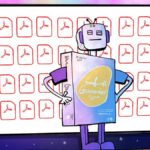
Students increasingly rely less on convention texts, and opt to study using PDFs.
| Photo Credit: SREEJITH R. KUMAR
The autumnal sunlight, filtering through the window curtain, woke me up from my midday nap that I have got used to in my post-retirement days. Suddenly, my attention got riveted to the scroll on the TV about the University Grants Commission taking a relook at the digital learning ecosystem to close the disconnect between education and employment. That set me thinking on a lost paradise, the classrooms which discovered, nurtured, and nourished the teacher in me for close to 50 years. Having taught English language and literature to multiple generations across Kerala, I thought it was worthwhile to explore and rediscover the ecstasies and anxieties associated with those days. Besides, it might not be out of place to reflect on the shifting scenes of the classroom dynamics, at a time when artificial intelligence is all set to revamp the teaching and learning process, and robots are getting ready to replace teachers.
Fifty years is a long period, long enough for a tectonic shift in any sphere of human activity. I started off dealing with a generation that was yet to see television. They might not have even heard of Internet, smartphone or artificial intelligence. The boys and girls, mainly from rural and semi-urban areas, were by and large simple and untouched by the surfeit of material comforts. They were traditional and had learnt from adversity.
For them, information technology meant the print medium, radio, telephone, and telegraph. They came to college on foot, by bus, or on bicycles. Having done schooling in the Malayalam medium, most of them struggled to speak in English or follow lectures in the language. Convent education was not common in those days. It was a generation haunted by the spectre of Wren and Martin, the famous authors of High School English Grammar and Composition. Obsession with grammar adversely affected their spoken English. However, their written English turned out to be better, which might have stood them in good stead in competitive examinations. Their pronunciation and accent often revealed the influence of the mother tongue. But they were diligent, hard-working, and brimming with enthusiasm. They read and wrote avidly and made full use of the library. Evidently, they had a sense of purpose and knew well that their future depended on their academic performance.
Resuming teaching after a few years, I found myself face to face with the so-called Gen Z. That they were netizens and tech-savvy was not enough to unnerve me, though I took pains to make myself less anachronistic. Armed with laptops, tablets, and smartphones, they looked like the quintessential digital natives. I was all admiration for their new-fangled ways, excellent communication skills, deft handling of electronic gadgets, and devil-may-care attitude. They had exorcised the ghosts of Wren and Martin. But what shocked me was their reluctance to explore the library, the lifeline for the earlier generations. Even postgraduate students were no different. They claimed to have everything they needed in the laptop. Their concept of books and reading was shaped by technology, which might be instrumental in moulding their character and outlook to a considerable extent. There was no conventional texts; only PDFs in the class. Stanley Fish, the American theorist, would have rephrased his question, “Is there a text in the class”, as “Is there a PDF in the class?” The enticing rustle of paper and the seductive aroma of books were lost on them. I wondered how a not-so-smart teacher like me could survive in a “smart classroom”. Eventually, I had to bring out the entire repertoire of my persuasive skills to convince my students that literature did not lend itself to be taught with the aid of educational gadgets. I still doubt if literature can be taught at all.
Let imagination flourish
But what is alarming is the breathtaking speed at which new forms of technology transform the educational landscape. AI and robotic devices are all set to replace teachers. We tend to repeat T.S. Eliot’s questions, “Where is the wisdom we have lost in knowledge? Where is the knowledge we have lost in information?” Technology is a double-edged sword. It enriches and at the same time, dehumanises human experience. It is high time we thought about what was lost in the classroom. We need to recalibrate and reimagine the educational process without estranging it from intuition, insight and creativity. Let the digital revolution not precipitate the demise of imagination, and let us not forget that teachers, if they want to survive in the classroom, would have to make themselves unique and do what no robot can mimic.
drcg.pillai@gmail.com
Published – October 26, 2025 05:33 am IST

